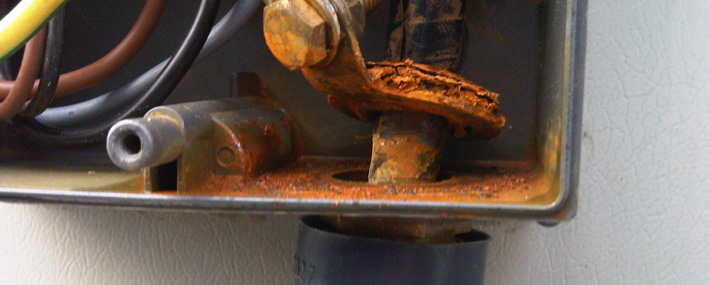We have all become accustomed to the flood of supposedly ‘economy’ range of products from manufacturers in the electrical supply industry, which often come at a competitive price that seems good to be true. Unfortunately, this can often be the case and by using these products you may be taking serious risks with the integrity of your cable installation.
The electrical contracting industry is more competitive than ever and efforts are always being made to improve margins and reduce costs, however many suppliers are providing cheap, sub-standard products in order to make themselves more competitive.
As a supplier of cable glands from a number of reputable manufacturers such as: CMP, Hawke, and Prysmian – we have carried out research over the years to ensure that quality standards are adhered to, allowing us to provide products with extended warranties. This protects both our reputation as a supplier and hopefully yours as a contractor of quality installations.
Our research has highlighted some of the following points worth bearing in mind:
– Cable Glands are covered by European Legislation, supplying glands that do not comply with the standards is contravening legislation.
– Many wholesalers and distributors are unaware of this, they may not realise what they are selling does not meet the relevant safety standards.
What problems can occur with Cable Glands?
There are three main factors affecting the safe performance of a cable gland, these include:
– Integrity of mechanical design
– Quality of materials used in manufacturing
– Degradation of seals over time
The tests contained within the current standard BS:EN50262 are designed to ensure that the product is of sufficient, robust mechanical design to enable it to withstand continuous shearing forces at the point of entry into the equipment and that the cable is adequately retained by the seals and/or armour clamp.
Sealing materials also vary greatly in their ability to withstand attack from airborne pollutants and environmental elements. Reputable manufacturers test their seals to withstand prolonged exposure to these risks.
Always check that your supplier can supply Third Party Test Reports that confirm these essential requirements, if they are unable to provide a test report, you should be aware that these products may not meet the required European legislation.
Brass is Brass?
A cheap inferior gland may, at first glance, look and feel very similar to a high-quality cable gland, but the quality of the brass used to make it can fluctuate greatly. Raw materials represent a significant cost in the cable gland manufacturing process, and due to the fact that extruded brass is a globally-traded commodity, the country of origin has a relatively small impact on the finished gland cost.
Typically, poor quality glands are manufactured from “Honey” brass, which is melted down and recast scrap metal, full of impurities and air voids which undermine the strength and integrity of the finished product which, over time, could lead to threads shearing or glands literally falling apart.
 |
 |
| Extruded Brass Bar | Honey Brass |
In some cases, the gland may rust after only a few years of use, implying a high ferrous metal content within the brass used in their manufacturer.
Actual case we have been called out to in the UK:

Choosing a gland to give you piece of mind
The first port of call should be checking if the product is CE marked. If it isn’t, you should have serious concerns about the risks you may be taking by buying or using these products. Even if the product comes with a CE mark, be aware of rogue manufacturers as the presence of the CE mark does not always mean the product complies.
If you have any concerns over the quality of the product you are buying, you should ask your supplier for the full CE Technical File, which will contain evidence of 3rd party testing and a detailed appraisal of the product compared to the prevailing standards.
Don’t damage your reputation
Unfortunately, often it is not until cable glands have been installed that quality issues come to light. Then it can be too late to avoid the potentially incalculable cost to your long term reputation, not to mention the short term cost on the job.
Should you require any further impartial advice on any of the above or if you would like to see further technical information, please do not hesitate to contact us.
If you found this article helpful or interesting, please share it!














